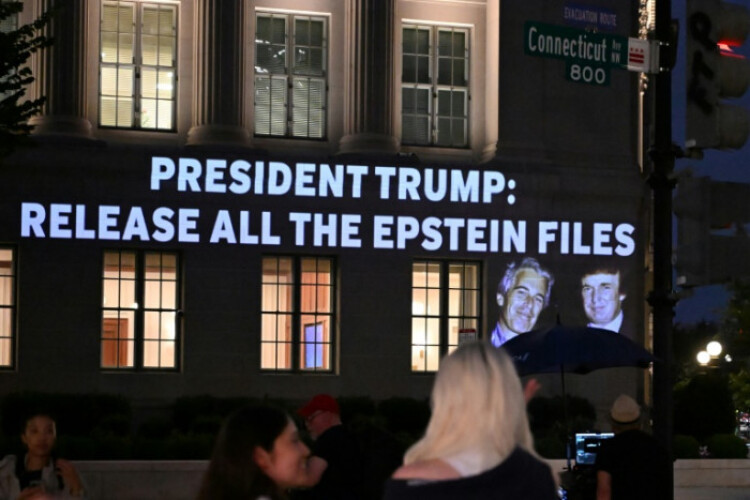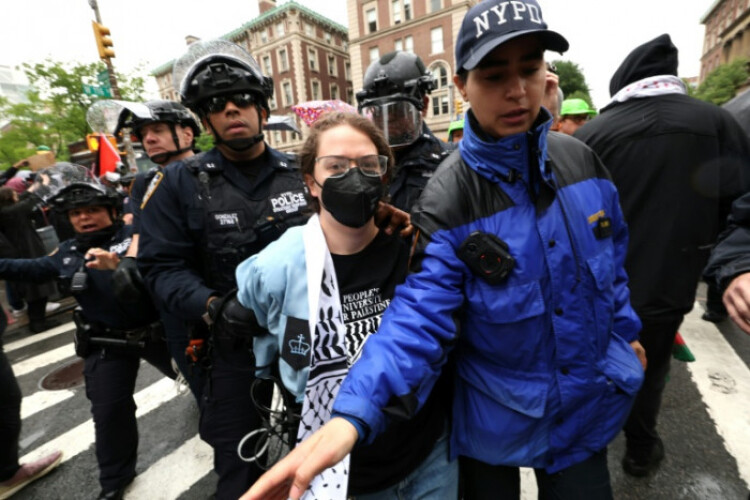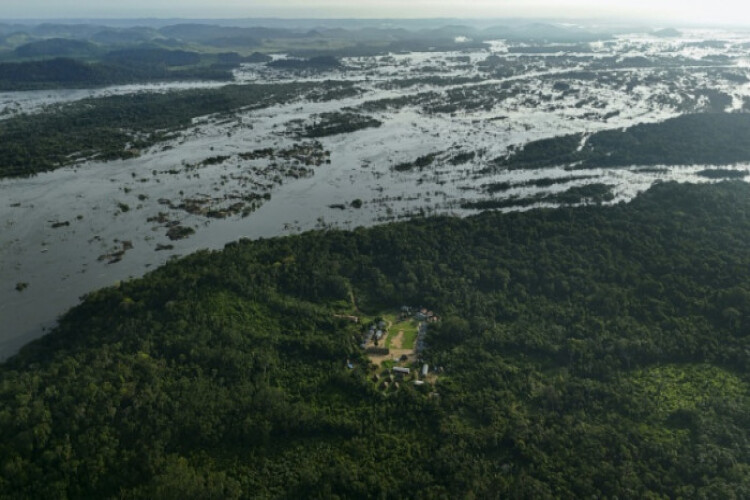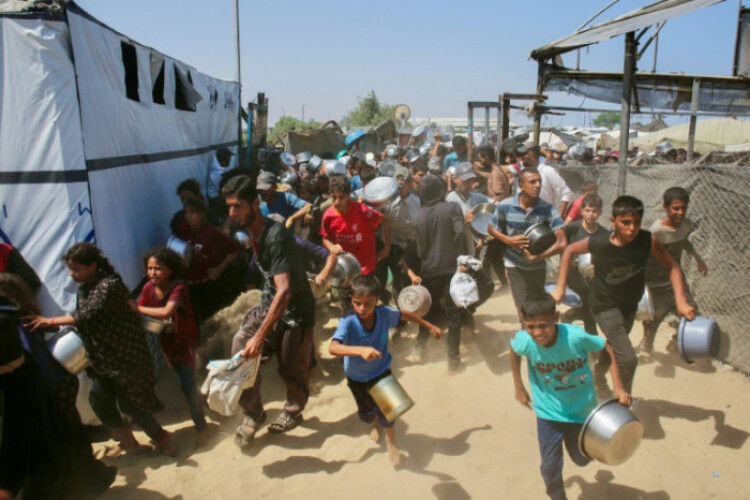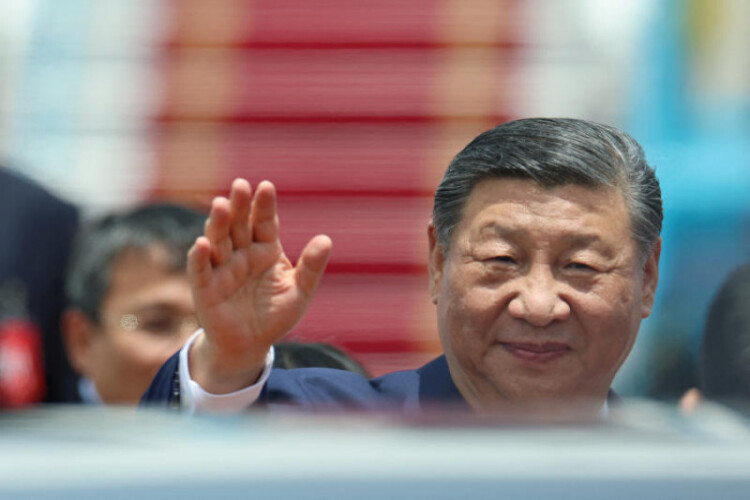
China and Vietnam are set to conduct their first joint army training exercise, according to the Chinese Defence Ministry.
In a statement posted on its website on Sunday, the ministry announced that the joint exercise would be held this month in southern China's Guangxi Zhuang autonomous region, which borders Vietnam.
Military ties between the Communist Party-led neighbours have deepened in recent months despite territorial disputes, as the close economic partners seek ways to navigate the US tariff war. The two sides have long carried out joint naval and land border patrols, but the coming exercise would be the first such exchange between their armies.
"This is the first joint army drill between China and Vietnam, with the theme of 'joint border patrol training'," the Chinese Ministry of Defence statement said.
The exercise would "further deepen practical cooperation between the two militaries", it added.
On the economic front, China is Vietnam's largest trading partner and a critical supplier for its manufacturing sector. Chinese President Xi Jinping visited Vietnam in April, days after the escalation of the US tariff war, where he called on the Asian neighbours to cooperate to "fight unilateral bullying".
Closer defence cooperation this year - which marks the 75th anniversary of diplomatic ties - has included the Chinese military's first-ever appearance at Vietnam's annual celebration of the fall of Saigon.
On April 30, People's Liberation Army troops marched in what was the biggest parade to mark 50 years since the end of Vietnam's civil war.
Also in April, Chinese Defence Minister Dong Jun visited northern Vietnam and met with his Vietnamese counterpart Phan Van Giang, with both sides pledging increased defence cooperation.
The PLA Navy's 38th joint patrol with the Vietnamese Navy in the Gulf of Tonkin also concluded in April. According to China's defence ministry, the operation involved two missile frigates from each country, and covered an area of over 200 nautical miles (370 kilometres).
Last July, China's Armed Police Force and Vietnam's Mobile Police Force conducted joint counterterrorism exercises in Guangxi.
Meanwhile, the two sides have also stepped up efforts to assert their overlapping territorial claims in the South China Sea, which Beijing claims almost in its entirety.
Hanoi has been a vocal critic of Beijing's activities in the South China Sea. Since 2021, Vietnam has quietly but steadily advanced its island-building activities in the Spratly Islands, whose rival claimants include the Philippines, Malaysia and Brunei.
According to a social media post by a Chinese think tank last month, Vietnam has continued land reclamation and expansion on islands and reefs it occupies in disputed areas, and has built new ports and airstrips with military-related facilities.
But Beijing has largely refrained from public criticism of Hanoi, reflecting their warming ties and heightened Chinese concerns over the deepening defence partnership between treaty allies the Philippines and the United States.
In contrast, Beijing has reacted strongly to the Philippine claims in the resource-rich, strategically vital waters. Frequent stand-offs between Chinese and Philippine coastguard vessels have heightened tensions in the region, with confrontations involving water cannon use and collisions near contested features.
In a statement posted on its website on Sunday, the ministry announced that the joint exercise would be held this month in southern China's Guangxi Zhuang autonomous region, which borders Vietnam.
Military ties between the Communist Party-led neighbours have deepened in recent months despite territorial disputes, as the close economic partners seek ways to navigate the US tariff war. The two sides have long carried out joint naval and land border patrols, but the coming exercise would be the first such exchange between their armies.
"This is the first joint army drill between China and Vietnam, with the theme of 'joint border patrol training'," the Chinese Ministry of Defence statement said.
The exercise would "further deepen practical cooperation between the two militaries", it added.
On the economic front, China is Vietnam's largest trading partner and a critical supplier for its manufacturing sector. Chinese President Xi Jinping visited Vietnam in April, days after the escalation of the US tariff war, where he called on the Asian neighbours to cooperate to "fight unilateral bullying".
Closer defence cooperation this year - which marks the 75th anniversary of diplomatic ties - has included the Chinese military's first-ever appearance at Vietnam's annual celebration of the fall of Saigon.
On April 30, People's Liberation Army troops marched in what was the biggest parade to mark 50 years since the end of Vietnam's civil war.
Also in April, Chinese Defence Minister Dong Jun visited northern Vietnam and met with his Vietnamese counterpart Phan Van Giang, with both sides pledging increased defence cooperation.
The PLA Navy's 38th joint patrol with the Vietnamese Navy in the Gulf of Tonkin also concluded in April. According to China's defence ministry, the operation involved two missile frigates from each country, and covered an area of over 200 nautical miles (370 kilometres).
Last July, China's Armed Police Force and Vietnam's Mobile Police Force conducted joint counterterrorism exercises in Guangxi.
Meanwhile, the two sides have also stepped up efforts to assert their overlapping territorial claims in the South China Sea, which Beijing claims almost in its entirety.
Hanoi has been a vocal critic of Beijing's activities in the South China Sea. Since 2021, Vietnam has quietly but steadily advanced its island-building activities in the Spratly Islands, whose rival claimants include the Philippines, Malaysia and Brunei.
According to a social media post by a Chinese think tank last month, Vietnam has continued land reclamation and expansion on islands and reefs it occupies in disputed areas, and has built new ports and airstrips with military-related facilities.
But Beijing has largely refrained from public criticism of Hanoi, reflecting their warming ties and heightened Chinese concerns over the deepening defence partnership between treaty allies the Philippines and the United States.
In contrast, Beijing has reacted strongly to the Philippine claims in the resource-rich, strategically vital waters. Frequent stand-offs between Chinese and Philippine coastguard vessels have heightened tensions in the region, with confrontations involving water cannon use and collisions near contested features.



